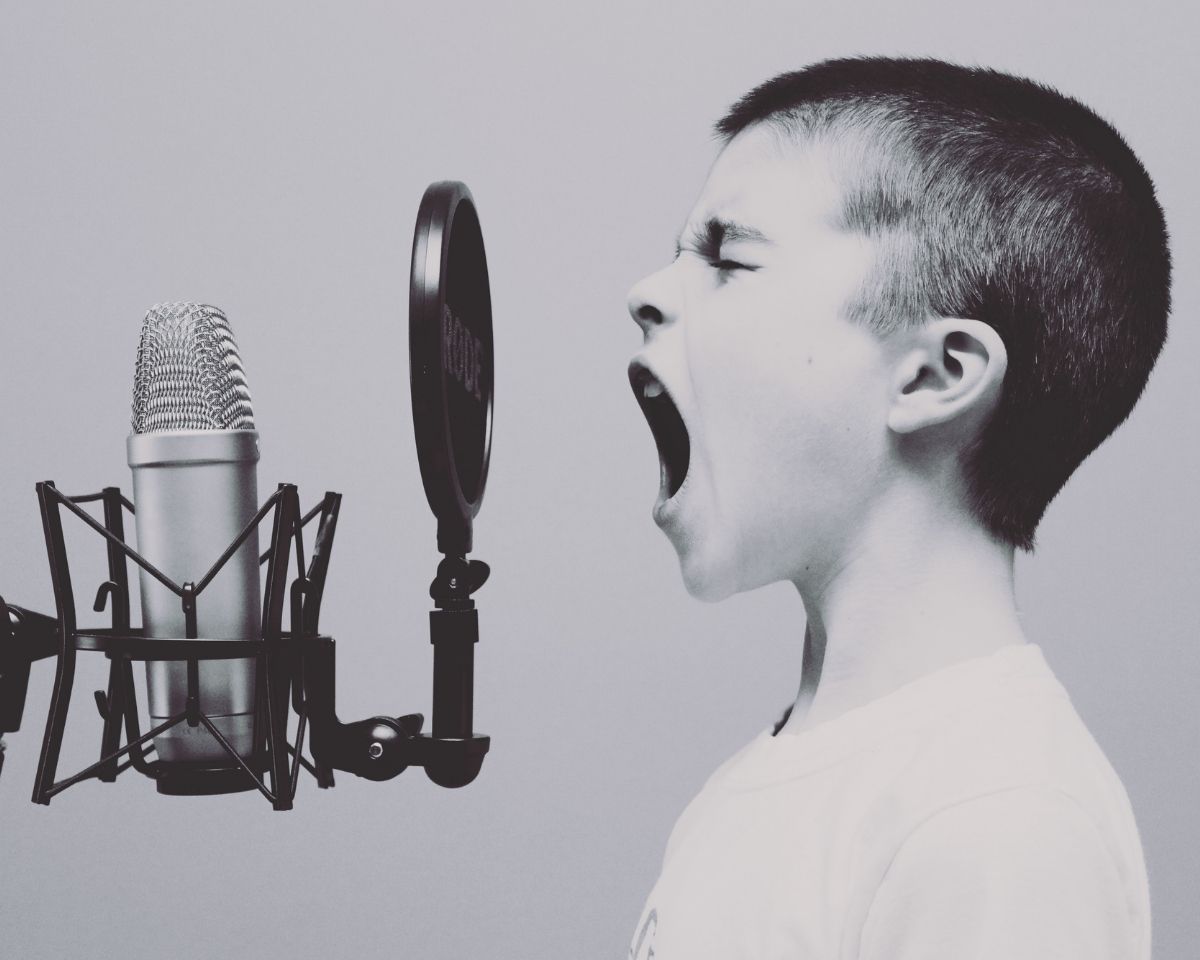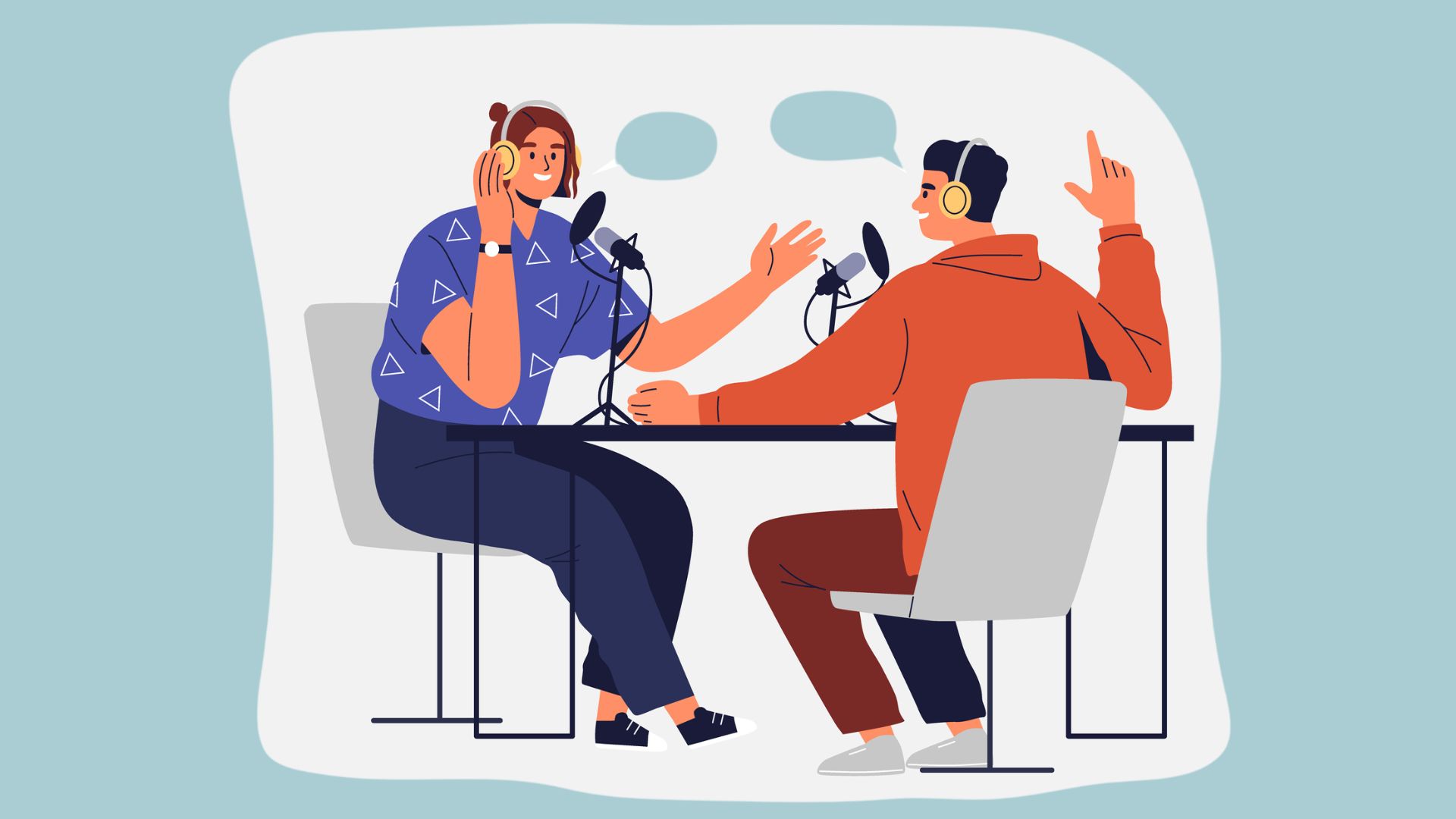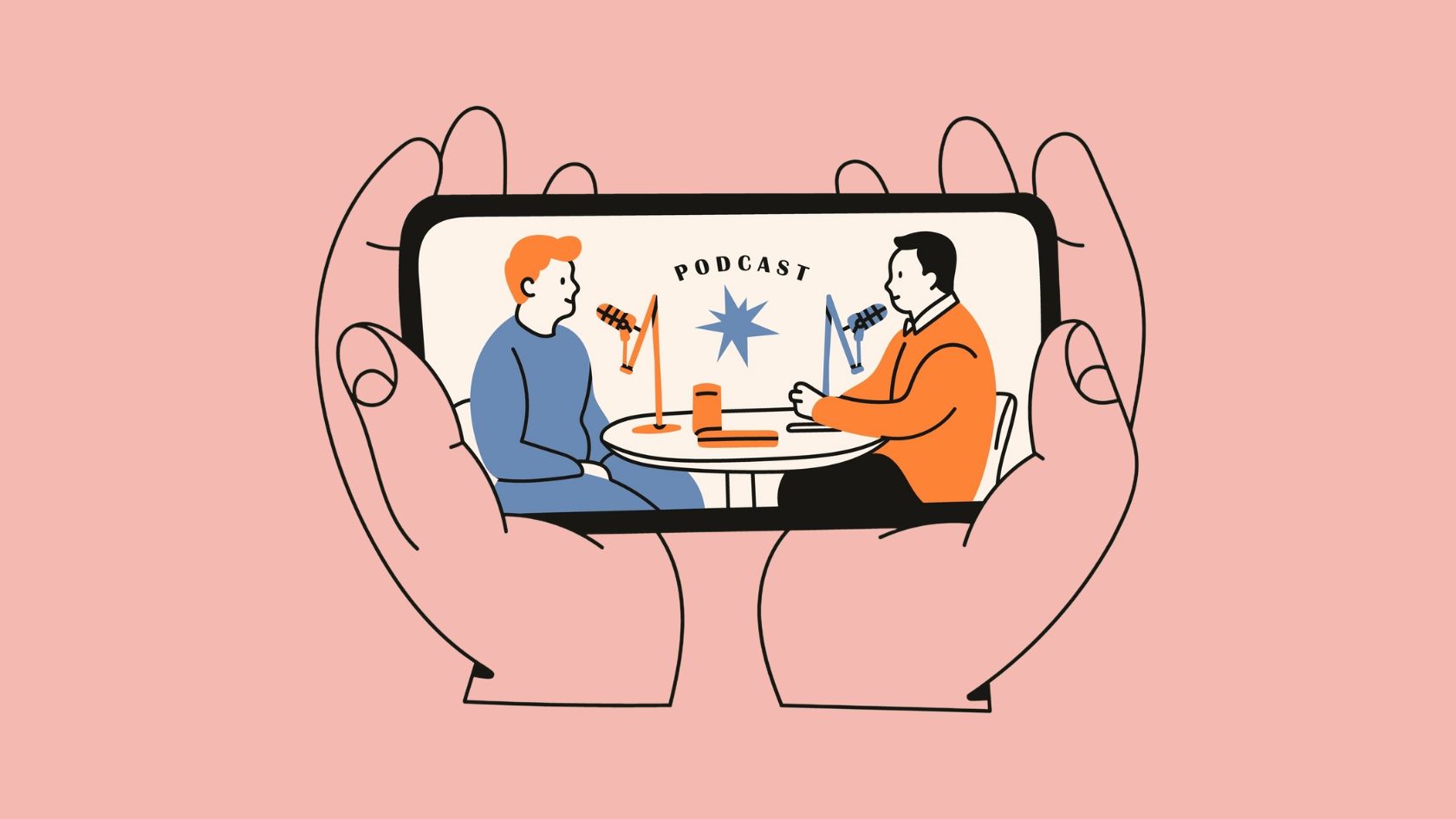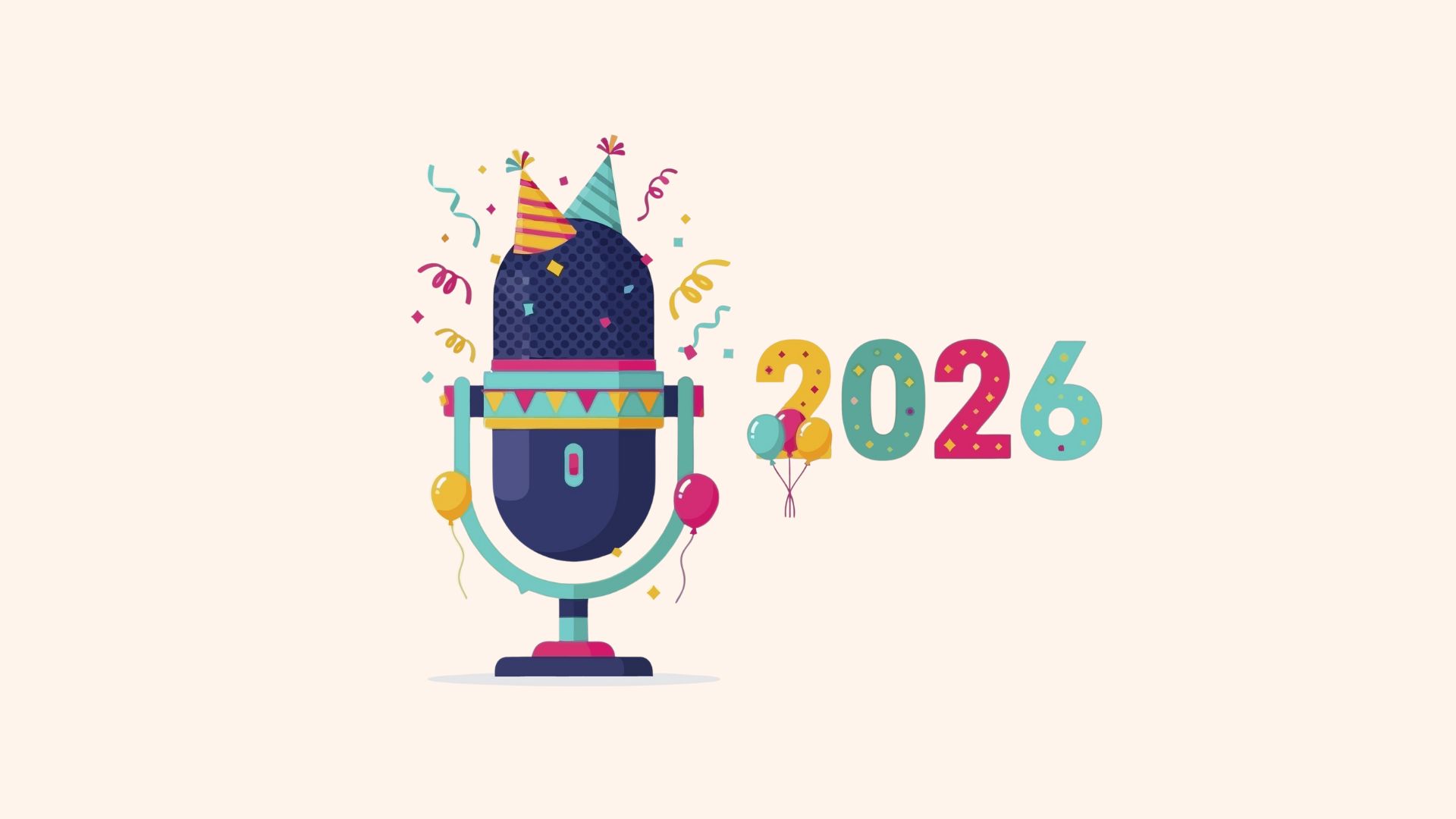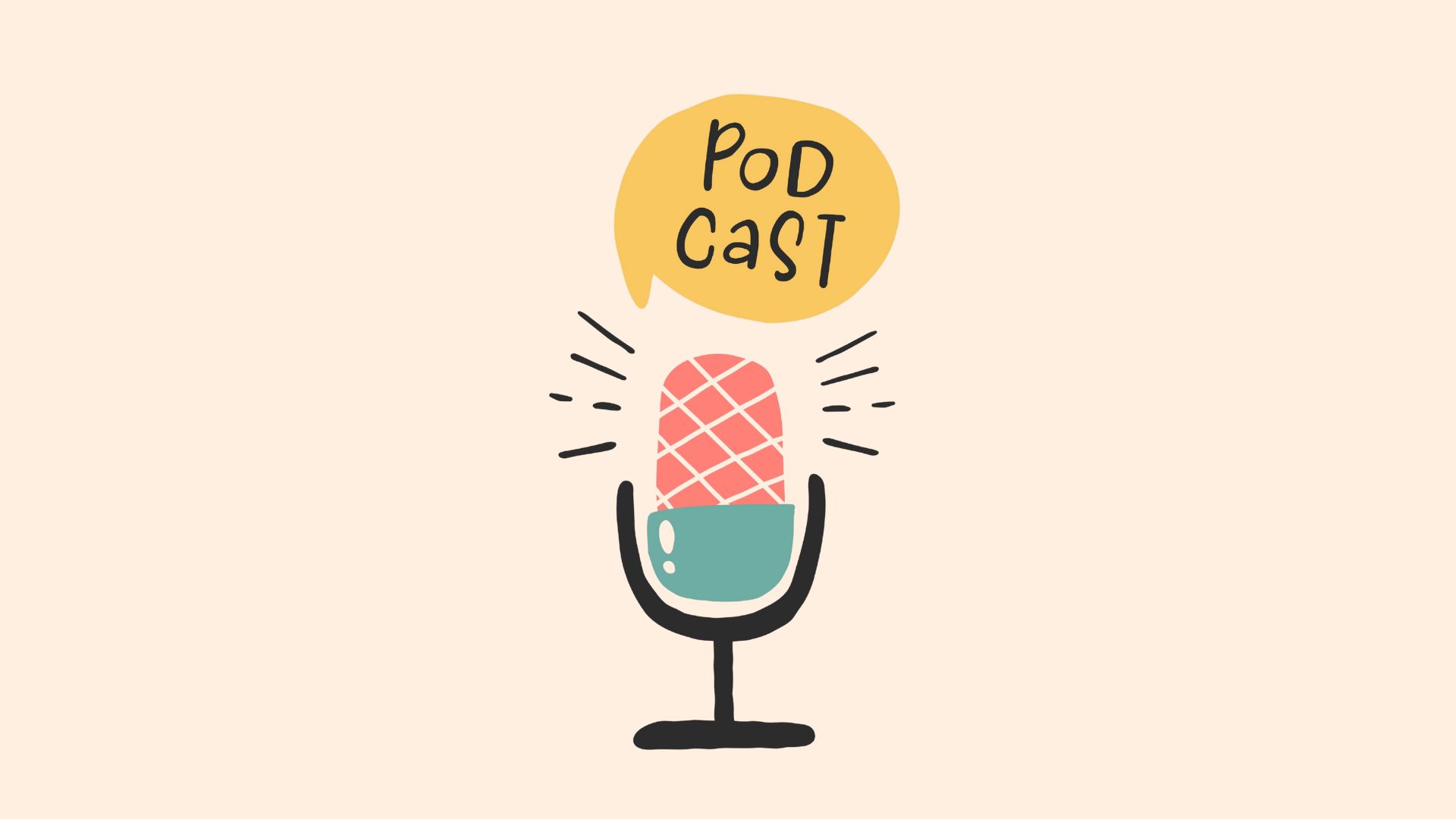Structure your ideas, ad-lib your words
If you want your podcast to feel natural and connected, reading a script word-for-word isn’t going to help, I’m afraid.
To maintain your connection with your audience you need to be speaking directly to them and it’s very hard to do that when you’re wedded to a script.
The sweet spot is to make sure you’re prepared but only working off light notes so you can stay in the moment while still directing the episode where it needs to go.
Want help starting your podcast? Download my FREE ‘How To Start A Podcast’ guide.
Why full scripts make you sound disconnected
Reading takes your focus to the page, not the person on the other end of the headphones.
And even if you’re really good at covering up the fact you’re reading, you’ll still lose the tiny pauses, reactions and imperfections that make you sound like you’re present and in the moment.
Listeners might not be able to tell why you don’t feel like you’re talking to them, or understand that you’re reading, but they will subconsciously feel the distance.
And sometimes, that all it takes for someone to switch off.
How to prepare so you still sound natural
Step 1: Brain dump all your ideas
Write down everything you want to cover in the episode as though you’re telling it to a single person.
Don’t worry about editing or sorting things into a coherent structure, just get everything out of your head.
Step 2: Pull out your main points or topic areas
Re-read your brain dump and highlight the 5 to 8 key points you want to hit during the episode.
Plan them out so you’ve got a strong beginning, middle and end to your podcast and so the content flows from start to finish.
Step 3: Edit your notes to highlight trigger words
Turn each of your key points into a bullet point and highlight or bold the main word/s in each point so you can find your place at a glance.
If you’re printing out your notes make sure you print them in a large font so you can see them easily.
You’re aiming to make it as simple as possible to check your notes while recording, without slowing yourself down or tripping yourself up.
Recording solo? Do this
Put your prep sheet full of trigger words under the lens of your camera or beside your mic so you can glance at it and continue talking down the barrel of the camera.
If you lose your place, stop, take a breath, pick up the sentence before the stumble and keep going so you’ve got a clear point for your edit.
Recording with a co-host? Keep it loose
Scripts are a big no-no when you’re working with a co-host because they make your show sound incredibly rigid.
The also make it virtually impossible to be in the moment.
If you’re working with a co-host, you should have a run sheet you can both reference so you know where you’re going but you’ll also want to be prepped individually.
Creating simple, easy to glance at notes are so important for co-hosted shows because you want to maintain eye contact and stay in the moment as much as possible.
That means you need to be able to look down, grab your point and keep going.
Your notes are there to keep your brain firing but sometimes the best moments are the ones you didn’t plan for, so don’t be afraid to run with them.
You can always come back to your plan if it’s there.
And if the tangent you go off on ends up going nowhere, that’s what editing’s for.
What about if you’re recording video?
The more times you stop down to redo something the more edit points there’ll be in your final video.
If you’re talking directly to camera try and make your notes super clear and put them somewhere near the lens so you don’t have to keep looking away.
There are some great teleprompter products out there but again, you don’t want to be scripting your show word for word, you want notes that will trigger a natural delivery.
Practice, practice, practice
If you’re still thinking “I can’t do this without a script,” then practice until you can.
Record a short episode using a script, then turn that script into bullet points, record it again and hear the difference.
You’ll hear that speaking off the top of your head is WAY more engaging so keep trying until you feel like you’re ready to give it a go for real.
Scripts feel safe, but they steal your presence
Preparing is fantastic but not if you’re preparing so much it removes your ability to connect with your audience.
Bullet point notes will help you talk to your audience like you’re having a conversation with them.
You’ll sound more confident, your edit will be faster and your listeners will feel like you are right there with them.
And that’s what you’re aiming for.
🎙️ Want to start a podcast but feeling overwhelmed?
Grab my free “How To Start A Podcast” guide or get step-by-step support inside my online course, PodSchool.
Got a question about podcasting? Send it my way so I can answer it on the podcast!


